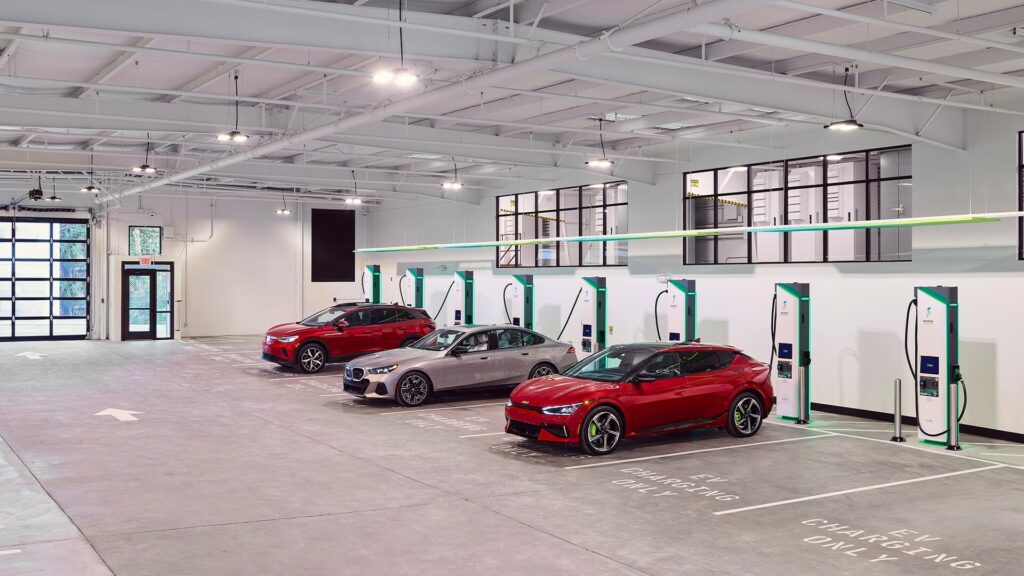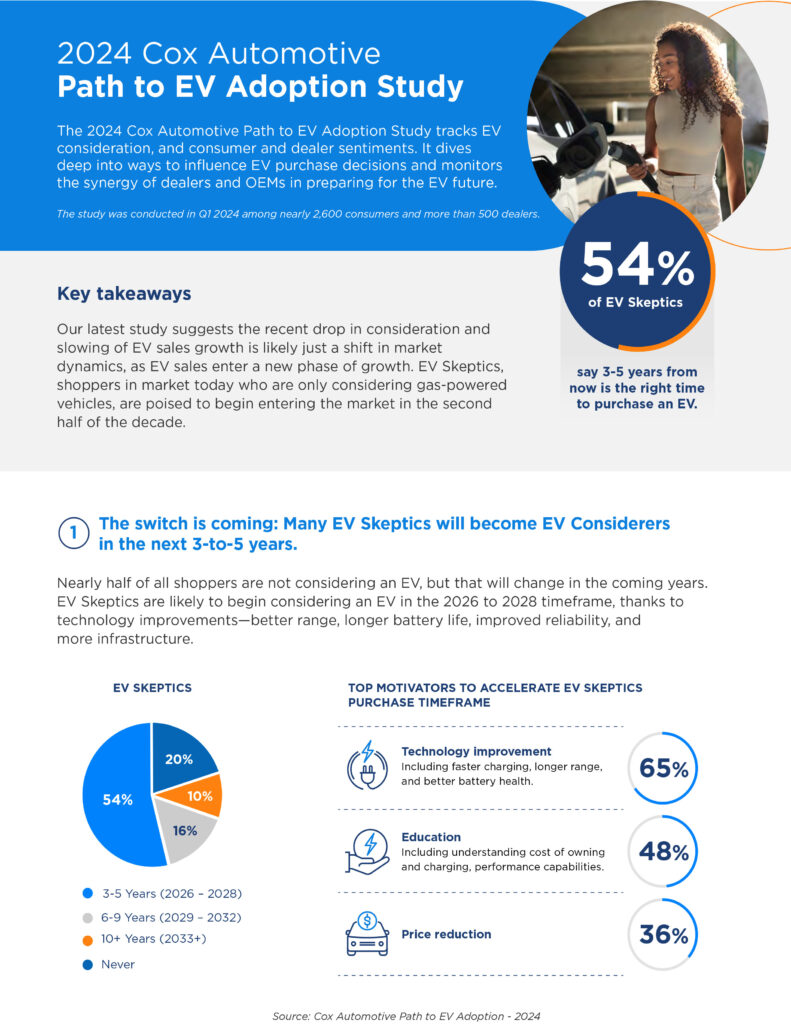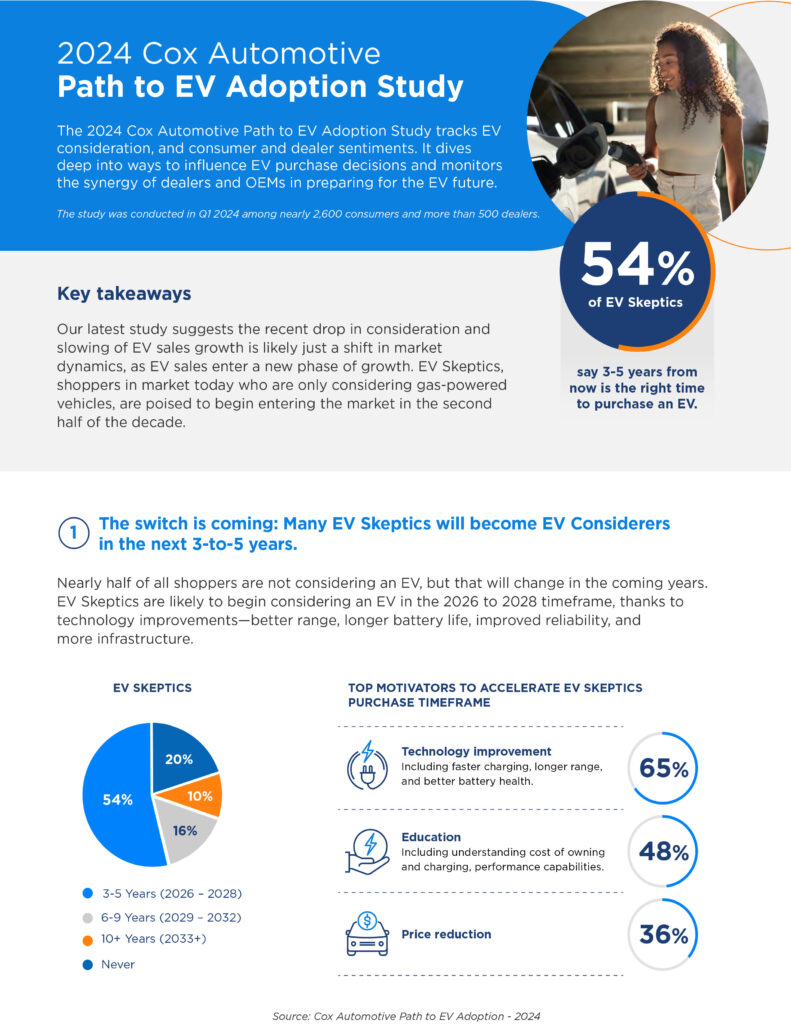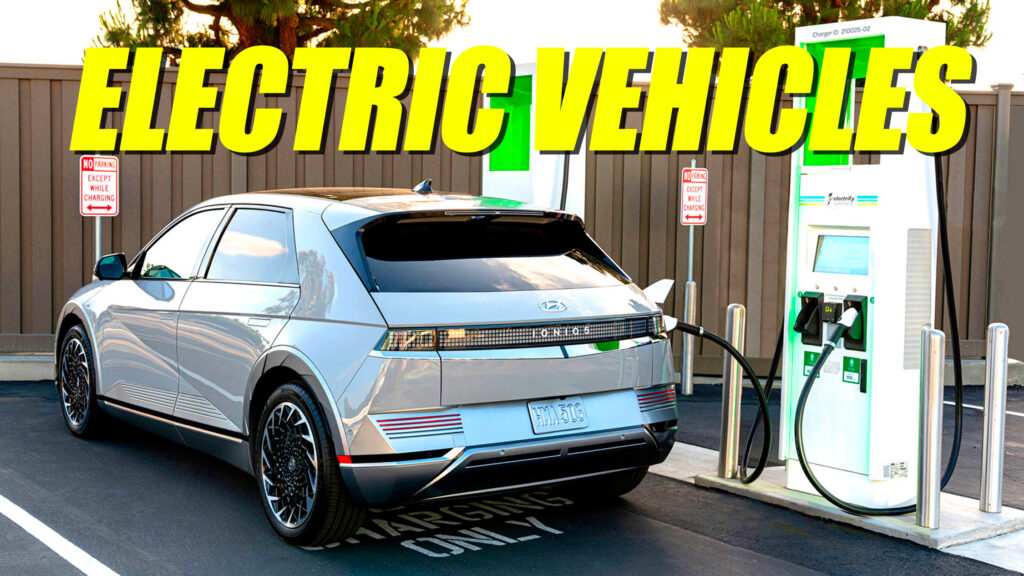- Current ‘EV Skeptics’ are expected to become ‘EV Considerers’ over the coming years.
- The study says that technological improvements, lower prices, and an improved charging network will increase demand for EVs.
- As many as 90% of new and used car buyers could consider an EV by 2033.
A new study suggests that a significant proportion of the population will consider buying an EV within three to five years as barriers fall and demand increases.
This study asserts that almost half of all vehicle shoppers are not considering purchasing an EV. These consumers, referred to as Skeptics in the study, are only considering ICE vehicles. However, Cox Automotive believes that with technology improvements, lower prices, and an improved charging network across the U.S., 54% of these current Skeptics could become ‘EV Considerers’ within three to five years.
Read: Producing Batteries In Europe Instead Of China Could Cut Emissions By 37 Percent
Isabelle Helms, vice president of Research and Market Intelligence at Cox Automotive, believes the recent drop in consideration and slowing of EV sales growth are normal.
“While we’ve seen EV sales growth slow and consideration dip, we believe this is part of a normal growth curve and not the end of the story,” Helms said. “We remain bullish on the long-term future of EV sales in America, as many Skeptics today will be carefully considering an EV by the end of the decade. With more infrastructure, education, and technological innovation and improvements, we believe electric vehicle sales will continue to grow in the long term.”

Consideration of EVs is expected to increase further over the next 10 years, and as many as 80% of current Skeptics could become EV Considerers. By this time, Cox Automotive believes most will be actively considering an EV, whether it’s new or used. This has led the firm to suggest that between 2026 and 2028, approximately 79% of new and used vehicle shoppers will be thinking about purchasing an EV. This figure could rise to 90% by 2033.
Most current Skeptics are holding out for better range, longer battery life, technological advancements, and improved reliability. As it stands, Tesla remains the most considered EV maker in the U.S., followed by Ford. Cox says that Toyota, Hyundai, and Kia have also experienced notable increases in EV awareness and consideration since 2021.





